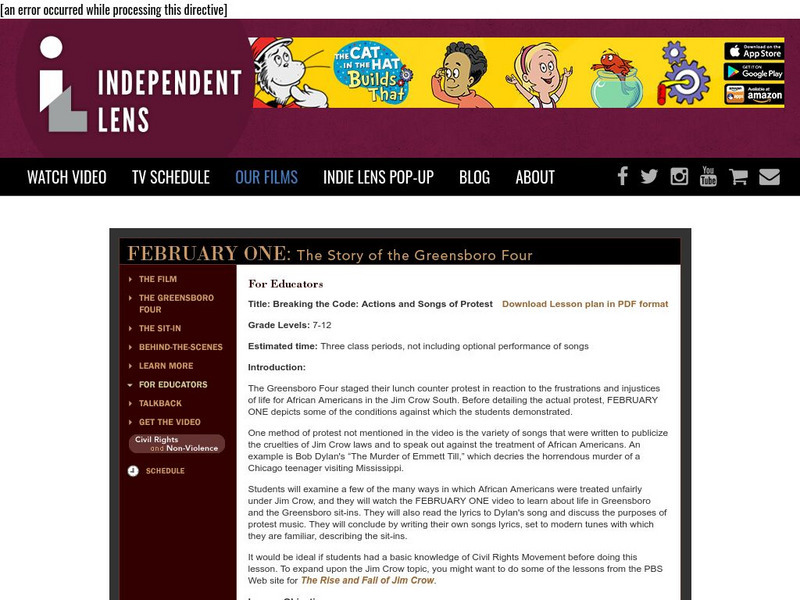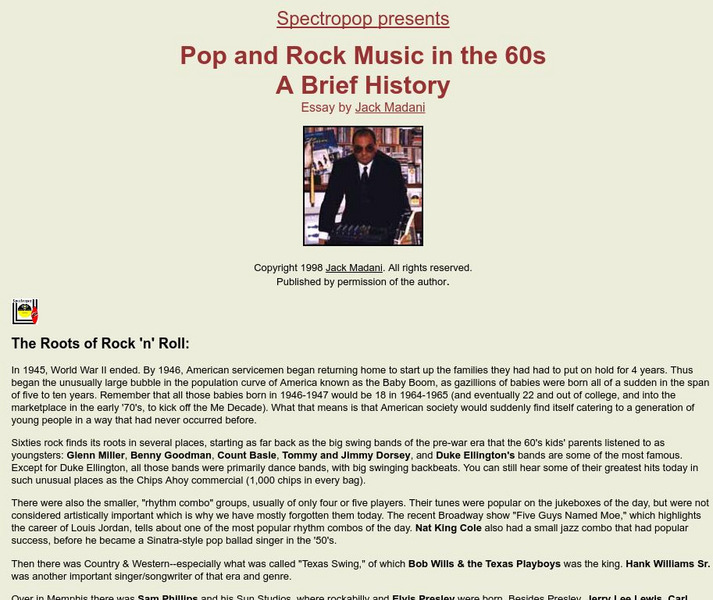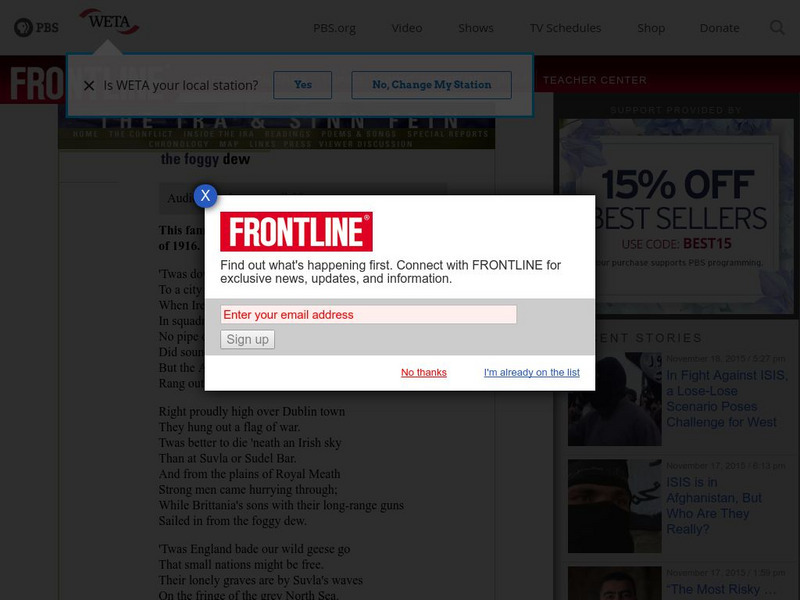National Humanities Center
National Humanities Center: Toolbox Library: Singing, Making of African American Identity: V. 3
An analysis of the role music played in the civil rights movement. The well known spiritual, "We Shall Overcome," is referenced as playing a key role in supporting this movement.
PBS
Pbs Teachers: February One (Lessons on the Greensboro Sit in of 1960)
Find two lesson plans developed for a PBS documentary about the Greensboro Four, whose sit-in at a whites-only Woolworth's lunch counter was a key event in the unfolding history of the civil rights movement. The lessons ask pupils to...
Other
Labor Arts: Labor Sings
Many songs, born of the American labor and civil rights movements, called people to action and were used to spread the messages of workers' rights and civil rights. Here you will find a nice collection of such songs. All songs in the...
Other
Pop and Rock Music in the 60s: A Brief History
This site has an web-article of the origins of 60s rock. Sections include "The Roots of Rock 'n' Roll," "The 1960's Begin," "The British Invade," and "1968 & 1969: The Unraveling." Also includes a bibliography section called...
US Holocaust Memorial Museum
U.s. Holocaust Memorial Museum: Music of the Holocaust
Numerous sound bites from concentration camp songs, protest music, partisan songs, ghetto songs and more. Each one has images and a short description of what was going on when the song was written.
Smithsonian Institution
National Museum of American History: Students "Sit" for Civil Rights
Read the book, "Freedom on the Menu" about the Greensboro Sit-Ins and use the background information and follow up activities provided to enhance the story.
Other
Stcc: Shays' Rebellion and the Making of a Nation
An extensive site that tells the story of Shay's Rebellion which took place after the Revolution in Massachusetts. Includes historic scenes, artifacts, documents, people, themes and essays, maps, songs and music, a timeline, and videos,...
PBS
Pbs: Frontline: The Ira and Sinn Fein: Poetry: "The Foggy Dew"
A favorite of Irish nationalists from the time that it was written (1919), "The Foggy Dew" is an example of a traditional ballad inspired by one of the most significant events in Ireland's long struggle with Britain: the 1916 Easter Rising.









